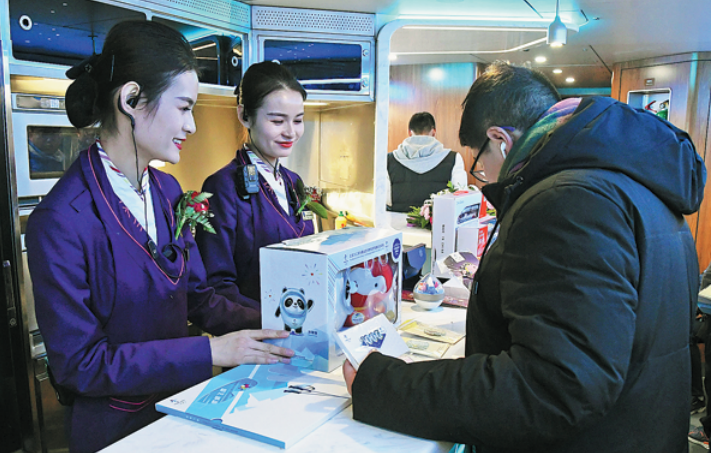Track to the future


Olympic odyssey
Before Yang's years of duty and dedication, China's Olympic journey had already begun. At the 1932 Los Angeles Games, sprinter Liu Changchun became the nation's first Olympian by competing in the men's 100m and 200m.
Four years later, a 69-strong Chinese team competed in five events at the Berlin Games, answering the second of Zhang's three questions.
His last was answered when giant golden footprints traversed along the axis from Tian'anmen Square to the Bird's Nest stadium to mark the opening of the 2008 Beijing Games as China's century-old Olympic dream was finally realized.
On Aug 1, a week before the opening ceremony, the Beijing-Tianjin intercity railway began operation, ushering in China's new high-speed rail era.
There were big changes, too, at Qinglongqiao Station. With faster alternatives available, fewer and fewer trains would stop there. Eventually, the station ceased to cater to passenger trains, instead providing a technical stopover for the suburban line S2, which opened two days before the opening ceremony.
This helped trigger the station's rebirth, bringing it to the attention of the government's industrial heritage investigation team, which restored it to its original early-20th-century state, thanks to experts from the Capital Museum and Yang's knowledge.
The station became a tiny museum and Yang assumed a new role-tour guide.
"In the past, passengers of different genders weren't able to stay together in one waiting room. This one is for male passengers, and the one on the opposite side is for females," Yang said in tour-guide mode.
"This is an advertisement of the American company that manufactured the locomotive used to climbed the gradient on the zigzag section."
Busy with both restoration and his regular duties, Yang admitted that he did not have much time to watch the 2008 Olympics.
And he was not the only one to miss the "extraordinary" Games, as it was hailed by then-International Olympic Committee president Jacques Rogge. Zhang Shijie was also working overtime at China Railway Engineering Consulting Group.
"Work occupied our minds. Sometimes we hoped meals could go directly into our stomachs without having to eat," Zhang Shijie said.
"My only memory of the Games was that China won a lot of gold medals, even edging the United States to top the table."
Born in Zhangjiakou, Zhang Shijie had to travel through Beijing en route to his grandmother's hometown in Shandong province, and the zigzag track at Qinglongqiao was a regular feature of his childhood.
"I remembered the train was really slow. It left at around 7:15 am and would not arrive in Beijing until almost 1 pm," recalled Zhang Shijie, who never thought that one day he would visit Qinglongqiao Station numerous times to design a high-speed rail link that cut the travel time between Beijing and his hometown to under an hour.
Most Popular
- A summer of golden memories
- China's Wang, Sun lead ITTF world rankings
- Three more skiers airlifted off 2026 Olympics slope in Bormio
- Ending 2024 on a high, Napoli returns to top of Serie A
- Osaka won't 'hang around' if the results don't come
- James still king of the court at 40






























